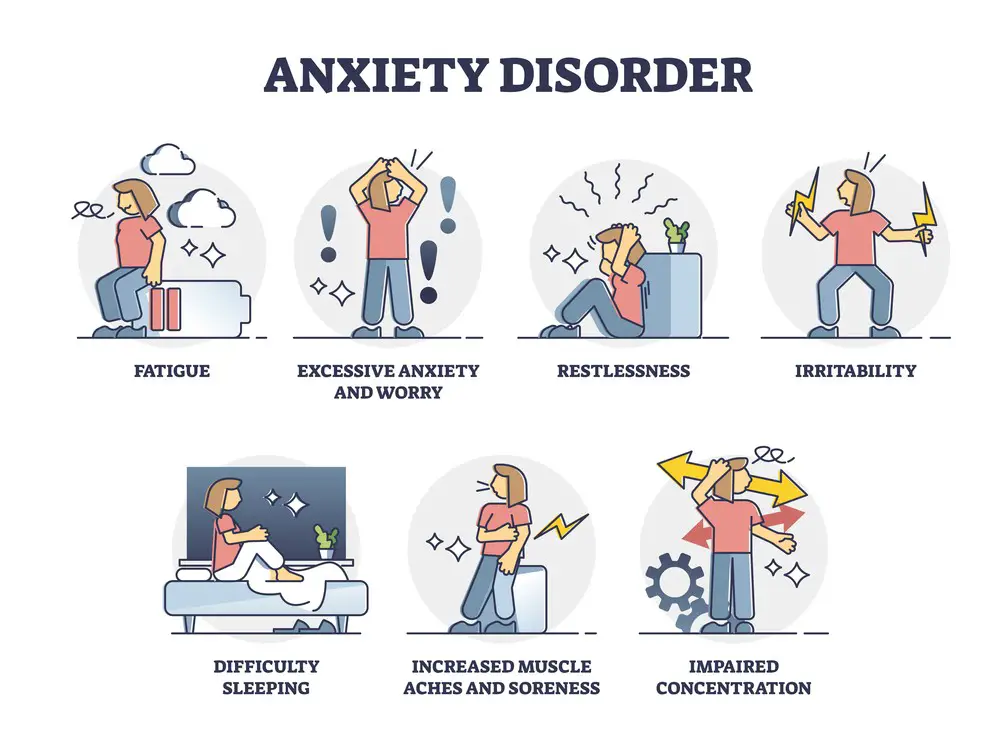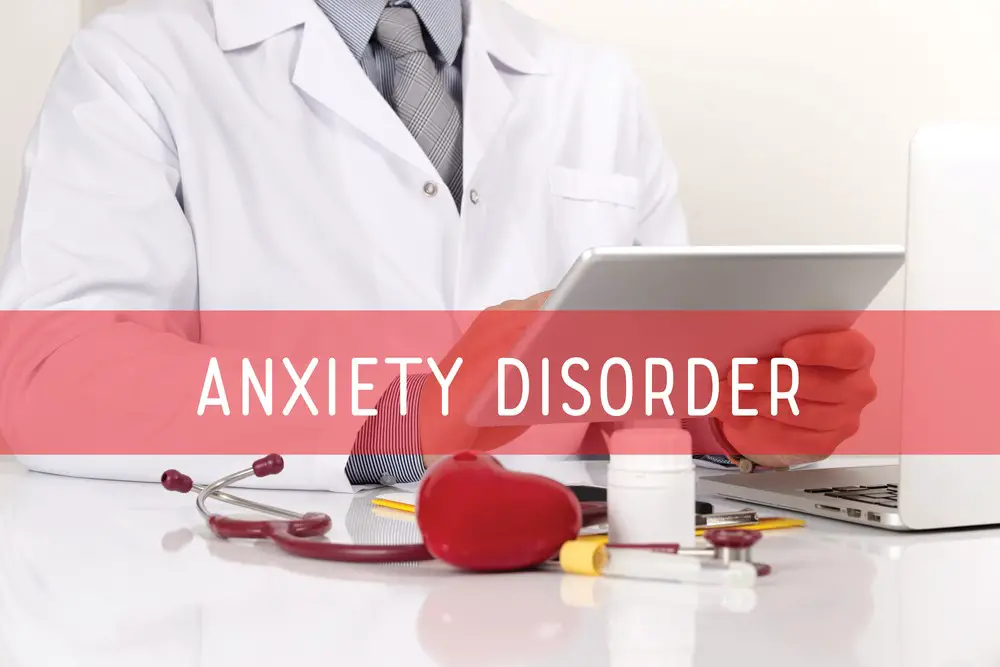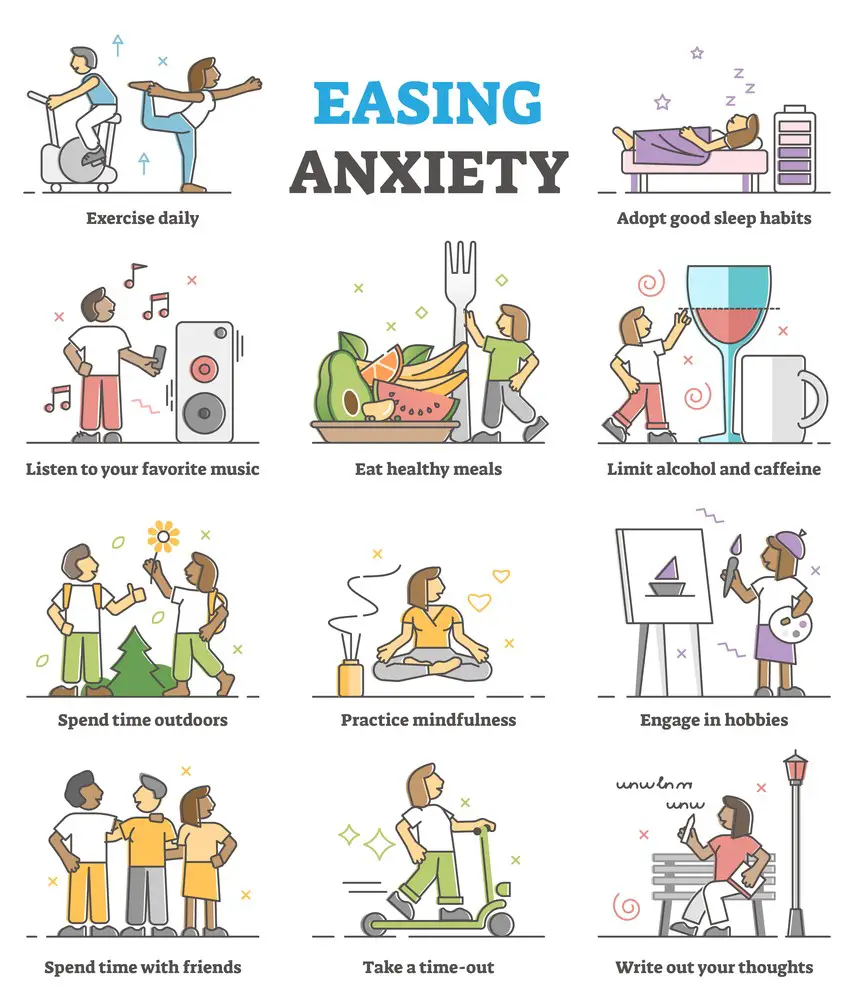As a BetterHelp affiliate, we receive compensation from BetterHelp if you purchase products or services through the links provided
Medication is one of the primary types of treatment used for anxiety and depression. Around a third of adults in the US report symptoms of anxiety or depression, while just over 13% use antidepressant medications. When considering whether to use prescribed medications for anxiety or depression, there are multiple factors you might want to consider. Effectiveness, side effects, cost, and even possible dependency are all things that can be smart to consider.
Not everyone decides that taking medication is the right option for them when they are dealing with depression or anxiety. Some people feel that better treatment methods are available and would prefer to look for alternatives. However, many do decide that taking medication, whether temporarily or long-term, is the best choice for them. If you’re thinking about whether medication is right for you, this guide can help you think about which could be the best medication for anxiety and depression.
 Natural Remedies for Anxiety and Depression
Natural Remedies for Anxiety and Depression
Before looking at prescription medications, you might want to consider what natural remedies might help to relieve the symptoms of anxiety and depression. These can be used instead of medication, but they can also be helpful alongside medication.
One of the first things many medical professionals will recommend is lifestyle changes. You can improve your life and health in many ways that may help you feel better. This can include physical exercise, improving sleep quality, a better diet, or finding ways to deal with stress. You might find it helpful to learn how to meditate or use other methods to balance your mood.
Another option for natural remedies is to look for non-medication products that could help you. This could include complementary and alternative medicine, herbal products, or products containing ingredients such as melatonin, CBD, and more. Many over-the-counter products could be helpful for you, with no need for a prescription and often fewer potential side effects to worry about.
 Medication Options for Anxiety and Depression
Medication Options for Anxiety and Depression
If you are looking for prescription medication for anxiety and depression, it’s essential to work with your doctor to find the right one. You might have a primary care doctor, a psychiatrist, or a medical professional who can prescribe medications. Together, you can discuss what might work best for you. Your doctor is likely to prescribe a few types of medication.
SSRIs (Selective Serotonin Reuptake Inhibitors)
SSRIs are a commonly prescribed type of antidepressant. They are usually the first choice for doctors to prescribe as they typically have fewer side effects compared to other options. Some common SSRIs include fluoxetine (Prozac), citalopram (Celexa), escitalopram (Lexapro), paroxetine (Paxil), and sertraline (Zoloft). These can be sold under alternative brand names, too.
SNRIs (Serotonin-noradrenaline Reuptake Inhibitors)
SNRIs are similar to SSRIs. They were initially designed to be more effective, but it’s unclear whether they are. Some people appear to respond better to SNRIs, while others have better luck with SSRIs. Some examples of SNRIs include duloxetine (Cymbalta) and venlafaxine (Effexor).

NASSAs (Noradrenaline and Specific Serotonergic Antidepressants)
For people who aren’t able to take SSRIs, NASSAs might offer an alternative. They have similar side effects but might cause fewer sexual problems compared to SSRIs. One of the potential downsides is that they might cause drowsiness when you first start taking them. An example of a NASSA is mirtazapine, sold under brand names including Remeron.
TCAs (Tricyclic Antidepressants)
This type of antidepressant is less commonly prescribed, especially as the first recommendation. It’s an older antidepressant that can have worse side effects compared to other options and can be more dangerous in the event of an overdose. However, they can sometimes be recommended for depression that doesn’t respond to other medications. They are also sometimes prescribed for other mental health conditions such as OCD and bipolar disorder.
 SARIs (Serotonin Antagonists and Reuptake Inhibitors)
SARIs (Serotonin Antagonists and Reuptake Inhibitors)
SARIs may also be prescribed if other medications have not been effective. They aren’t usually the first choice, however.
Pregabalin
Antidepressants are sometimes prescribed for people with anxiety, too. An alternative medication for anxiety that you might be prescribed is pregabalin. This anticonvulsant medication is also helpful in treating anxiety, although it has some potential side effects.
Benzodiazepines
Benzodiazepines, such as diazepam, can also sometimes be prescribed for anxiety. They are usually preferred as a short-term treatment, especially for severe periods of anxiety. They can provide relief for around 60-90 minutes. As well as having some side effects that are important to pay attention to, benzodiazepines can also become addictive, so it’s essential only to use them temporarily.
 Choosing the Right Treatment for Anxiety and Depression
Choosing the Right Treatment for Anxiety and Depression
Choosing the right treatment for anxiety and depression isn’t something that you want to rush. It’s essential to take decisions about your health seriously, and everyone should have autonomy regarding their health. Medication is just one option; you might decide it’s not the best choice. If you want to see if medication will help you, consider your options’ potential benefits and drawbacks. Your doctor can advise you on which medications could be best suited to you and make sure you’re aware of potential side effects. It can take some time to find something that works for you.
Alternative Solutions for Anxiety and Depression
Medication isn’t the only treatment option you have to treat anxiety and depression. You can explore other solutions that you might find helpful, either on your own or together with medication. Talking therapies are popular and can teach you some essential skills for helping yourself.
For example, cognitive behavior therapy (CBT) and dialectical behavior therapy (DBT) are two options. They both aim to help you change the way you think about and react to your thoughts and feelings of depression and anxiety. Other treatments could include interpersonal therapy, counseling, and self-help groups.
When depression is resistant to the usual medications, alternatives could include lithium (a mood stabilizer) or electric shock treatment, which can be helpful for severe depression.
Exploring Effective Anxiety and Depression Medications
When you are looking for the right anxiety or depression medication, your doctor can be helpful. However, it’s also useful to do your research to work out what might be right for you. There are scientific studies that look at the efficacy of different medications. One meta-analysis (which looks at the results of multiple studies) found that some of the most effective medications for major depression include escitalopram, mirtazapine, and paroxetine. It also found that citalopram, escitalopram, fluoxetine, and sertraline were more tolerable than others.
It’s important to remember that everyone is different. A medication that is effective for one person might not be as effective for another.
Finding Relief with Anxiety and Depression Medications
Many people who take medication for anxiety and depression are satisfied with their treatment. Medication can help to provide relief for both anxiety and depression, both short-term and long-term. One study showed that more than 90% of participants with depression or anxiety taking an antidepressant reported better sleep. The study also showed an overall improvement in quality of life.
People who begin taking medication for anxiety or depression might not see improvements right away. It can take time to start feeling positive effects. It’s also sometimes necessary to try a couple of different medications before finding the right one.
Understanding the Benefits of Anxiety and Depression Medications
Anxiety and depression medications can deliver many benefits for those who find them helpful. They can be beneficial alone but also help people focus on other treatments and lifestyle changes that improve their symptoms. Up to 70% of people who try antidepressants feel that they improve their symptoms of anxiety or depression. Antidepressants can help to lift the mood and generally relieve anxiety and depression symptoms. This then enables people to make improvements to their lives in other ways without anxiety and depression getting in their way.
Medication for anxiety and depression may not cure either condition, but many feel that it can dampen the worst feelings. This can mean they can better engage with other treatments, such as therapy.
Combating Anxiety and Depression with Medication
Prescription medication is a common choice for people who experience either anxiety, depression, or both. It can be an effective treatment that helps people address their mental health and start making positive changes. With medication, some people can start making other positive changes. Taking medication for depression or anxiety can be a temporary measure, or it can be more long-term for some people.
You might decide that taking medication is the right step for you if you are dealing with depression or anxiety. Alternatively, you might want to explore other options. It’s essential to speak to your doctor if you want to explore whether medication for anxiety or depression could be the right choice for you. They can help you consider medication and other available treatment options.
Navigating the Crossroads: When Medication Becomes a Key Ally in Your Mental Health Journey
Medication can be a pivotal element in managing anxiety and depression, but recognizing the right time to seek this form of treatment is crucial. Here’s a guide to understanding when medication might be the next step in your journey:
- Persistent Symptoms: If you’ve been experiencing symptoms like continuous sadness, worry, or a feeling of emptiness that just won’t go away, it might be time to consider medication.
- Impact on Daily Life: When your mental health starts to significantly affect your ability to work, maintain relationships, or enjoy life, medication can help in restoring balance.
- Non-Responsive to Other Treatments: If you’ve tried other treatments like therapy, lifestyle changes, and self-care techniques without significant improvement, medication could be an effective option.
- Severe Symptoms: In cases where symptoms are intense and debilitating, such as having suicidal thoughts, severe panic attacks, or inability to function, medication is often a crucial part of treatment.
- Medical Recommendation: A healthcare provider’s recommendation can often guide this decision. If a psychiatrist or doctor suggests medication, it’s worth considering their professional opinion.
 Embracing Therapy: Identifying the Moments When Talking It Out Is Key
Embracing Therapy: Identifying the Moments When Talking It Out Is Key
Therapy plays a vital role in treating anxiety and depression. Understanding when to lean more towards therapy can be life-changing. Here’s what to look out for:
- Understanding Root Causes: If you’re looking to explore and understand the underlying causes of your feelings, therapy is often more beneficial than medication alone.
- Developing Coping Strategies: Therapy can teach valuable skills to manage symptoms and cope with stressors in a healthier way.
- Mild to Moderate Symptoms: In cases where symptoms are present but not severely debilitating, therapy might be the best initial approach.
- Desire for Personal Growth: Many people find therapy beneficial for symptom management, personal development, and improving self-awareness.
- Support System: Therapy can be a great way to build a support system, offering a safe space to express feelings and work through challenges.
Remember, the journey toward mental wellness is personal and varies from one individual to another. A combination of medication and therapy often provides the most comprehensive approach. Always consult with a healthcare professional to make informed and safe choices for your mental health.
- 7 Ideas to Help You Relax and Unwind on a Family Vacation - April 27, 2025
- How Having Cybersecurity Protection Helps You Relax - April 25, 2025
- 8 Reasons Why Spending Time Outside Calms You Down - April 25, 2025
This site contains affiliate links to products. We will receive a commission for purchases made through these links.


 Natural Remedies for Anxiety and Depression
Natural Remedies for Anxiety and Depression Medication Options for Anxiety and Depression
Medication Options for Anxiety and Depression SARIs (Serotonin Antagonists and Reuptake Inhibitors)
SARIs (Serotonin Antagonists and Reuptake Inhibitors) Choosing the Right Treatment for Anxiety and Depression
Choosing the Right Treatment for Anxiety and Depression Embracing Therapy: Identifying the Moments When Talking It Out Is Key
Embracing Therapy: Identifying the Moments When Talking It Out Is Key
